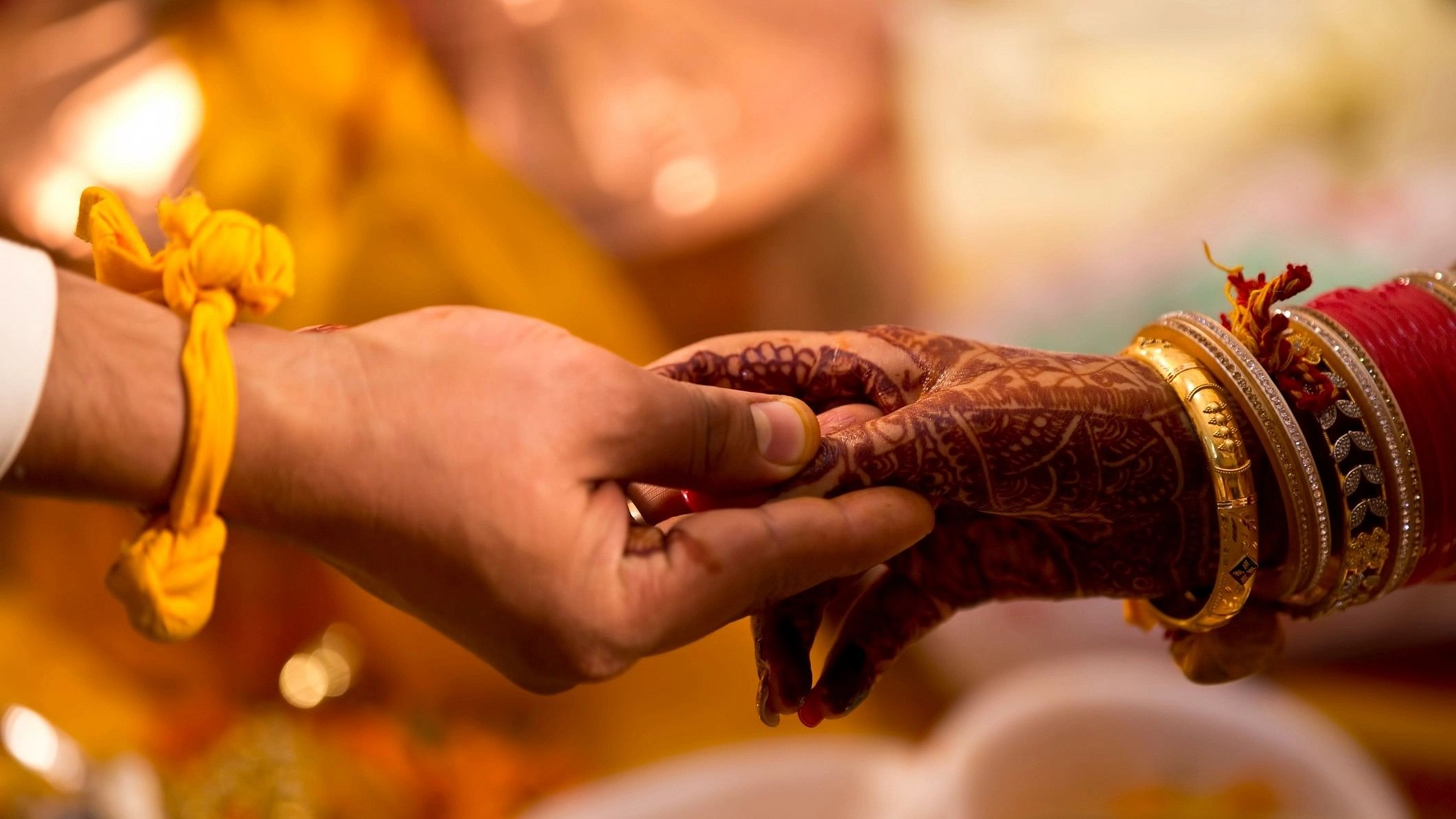
Representative image of couple during their wedding.
Credit: iStock Photo
Recently, Bhupendra Patel, the Chief Minister of Gujarat, said that the BJP government in the state will explore the viability of enacting a law requiring parental approval for love marriages. The government intends to proceed only if it aligns with constitutional provisions, he said. This idea for enacting the law likely stems from certain sections of the Patidar community, a dominant electoral group in the state.
The suggested legislation will go against the established tenets of the Constitution of India. The judiciary has repeatedly upheld the right to marry a person of one’s choice. The right to marry a person of one’s choice is a fundamental right recognised by the constitution.
The right to choose a partner, whether within or outside marriage, falls under the exclusive domain of each individual. Neither the state nor the law can dictate this choice or restrict people’s freedom to decide. These principles form the essence of personal liberty as per the Constitution.
The right to marry a person of one’s choice is an integral part of Article 21 of the Constitution. The Constitution guarantees the right to life. Further, in the case of Common Cause (A Regd. Society) vs Union of India (2005), the Supreme Court observed that it is within the autonomy of the individual that is founded on the ability to decide on whom to love and whom to partner with. In Justice K S Puttaswamy (retd) and others vs Union of India and others (2018), a Constitution Bench of nine justices of the Supreme Court of India dealt extensively with the issue of choice.
The Court had unanimously concluded that “the right to privacy is safeguarded as an integral aspect of the right to life and personal liberty under Article 21. Justice Dr D Y Chandrachud’s majority opinion held that the fundamental right to privacy would cover the privacy of choice, which protects an individual’s autonomy over fundamental personal choices.
In Shakti Vahini vs Union of India (2018), the apex court said that the consent of the family, the community, or
the clan is not necessary once the two adult individuals agree
to enter into a wedlock. Their consent has to be given primacy, it said. It further affirmed that when two adults willingly marry, they consciously chart their path, cement their bond, and firmly assert their right to do so. The Court categorically declared that this
right is constitutionally protected, and any violation of it would be a breach of constitutional principles.
The strength of the Indian constitution lies in the fact that it gives a guarantee to each individual that they will have a protective entitlement in determining the choices of their partner in marriage. In Ghulam Deen vs State of Punjab (2022), the Punjab & Haryana HC held that merely because someone has married against the wishes of their family, they cannot be deprived of the fundamental rights as envisaged in the Constitution of India.
The most recent decision is that of the Punjab and Haryana High Court in Tek Chand vs State of Haryana (2023). The court has made pertinent observations in this regard, stating that Swayamar, i.e., marriage by your choice, is not a modern phenomenon and its roots can be traced in ancient history, and our constitution is enforcing this human right as a fundamental right under Article 21 of the Constitution.
Even the Universal Declaration of Human Rights, to which India is a signatory, while stating the fundamental importance of marriage as an incident of human liberty, states under Article 16(2)
that marriage can be entered only by the full consent
of individuals.
Although obtaining parental consent is a practice within Indian culture, it hasn’t been formally recognised as a legal custom. The current marriage laws in India, including personal laws, do not stipulate the requirement for parental endorsement for marriage.
The suggested legislation by the Gujarat government would be seen as regressive. While the judiciary is moving forward with progressive measures and delivering judgements like the Navtej Singh Johar vs Union of India (2019) case, which extends the right to choose a partner to the LGBTQ+ community, the BJP-led Gujarat government is introducing a law that mandates parental consent for love marriages.
Enforcing this proposed legislation could lead to treating children as possessions of their parents and infringe upon an individual’s fundamental right to select a life partner.
(The writer is a student at the National Law University, Jodhpur.)